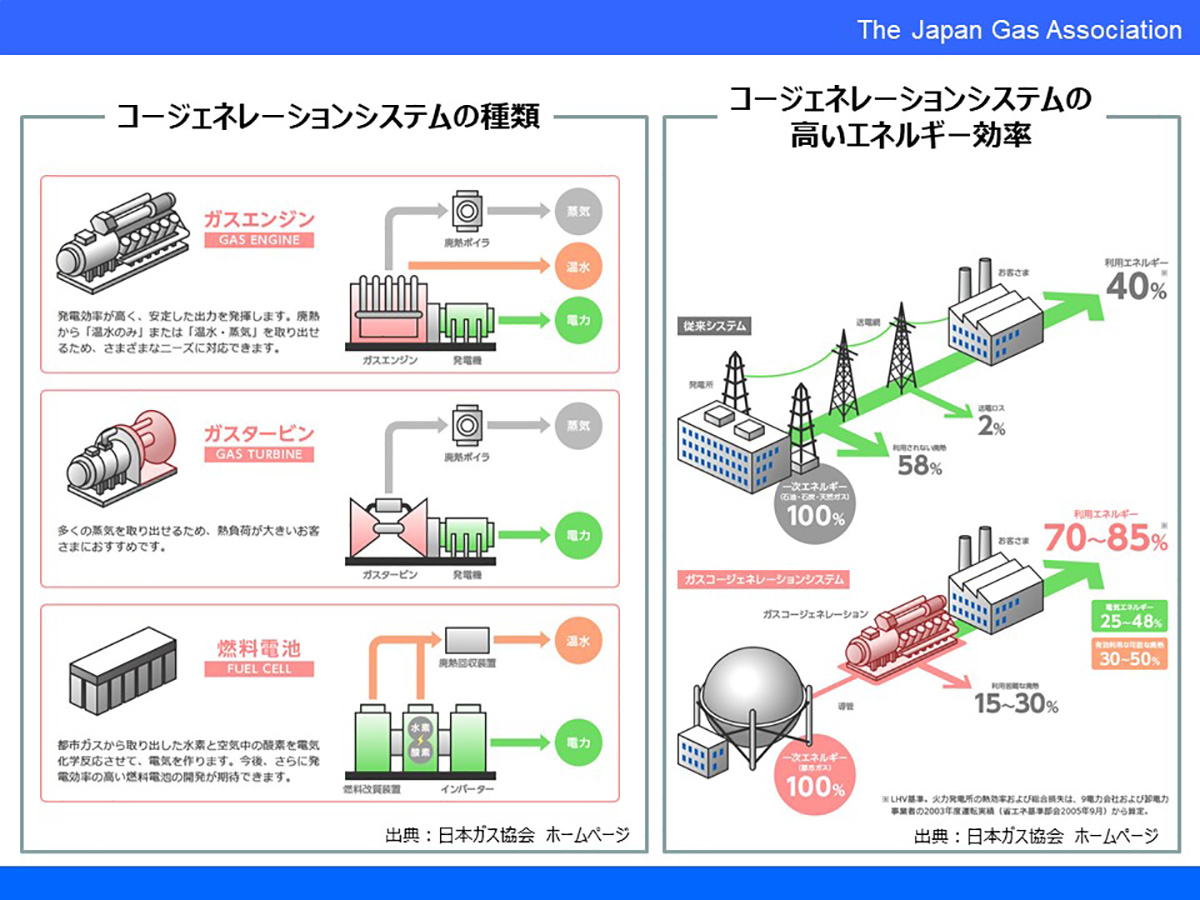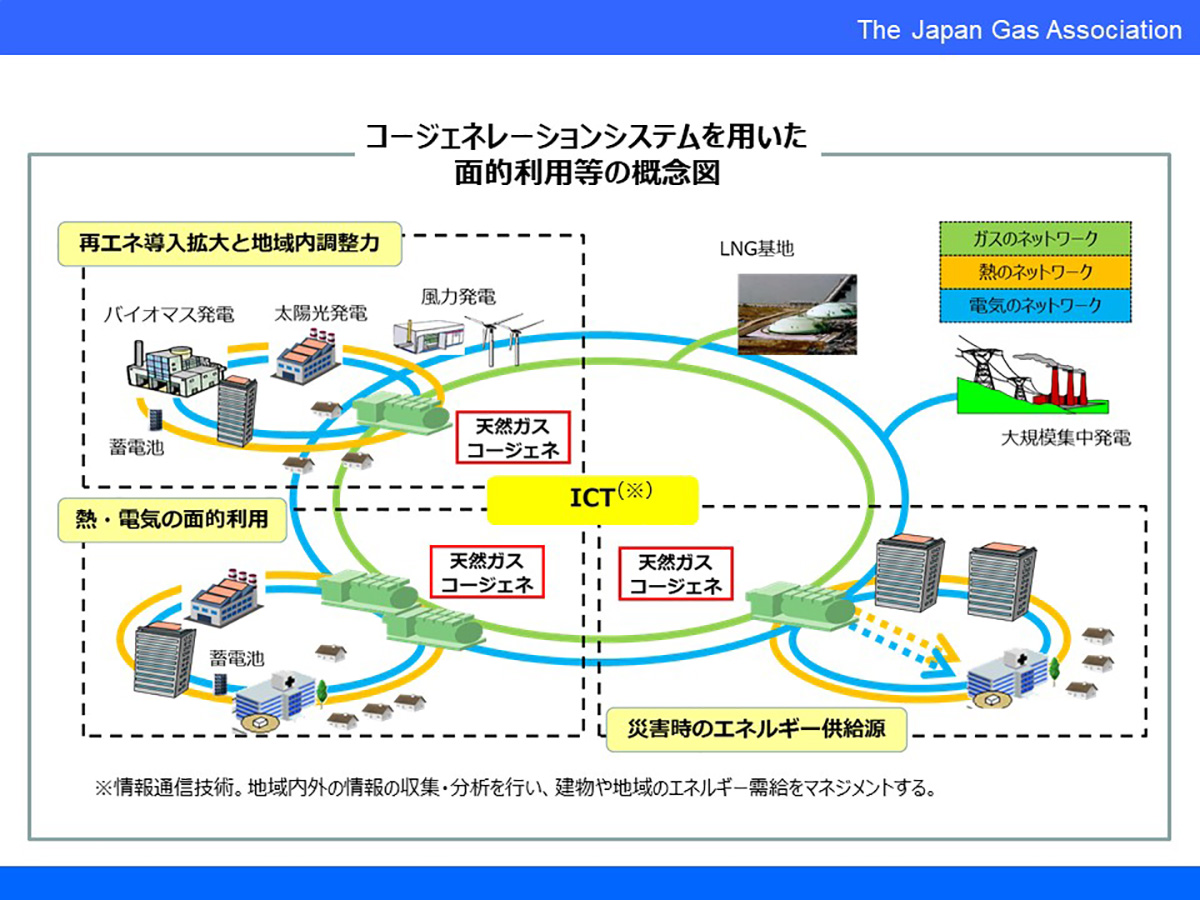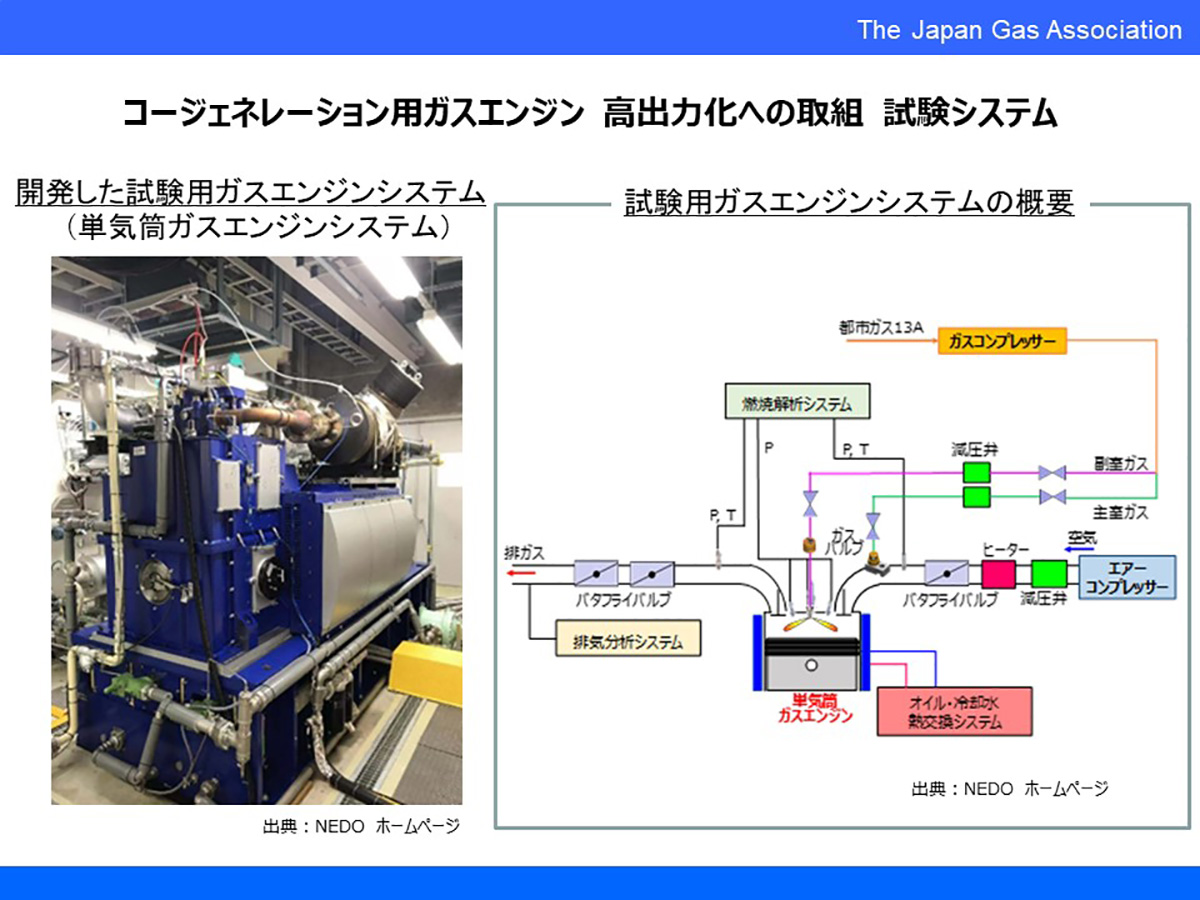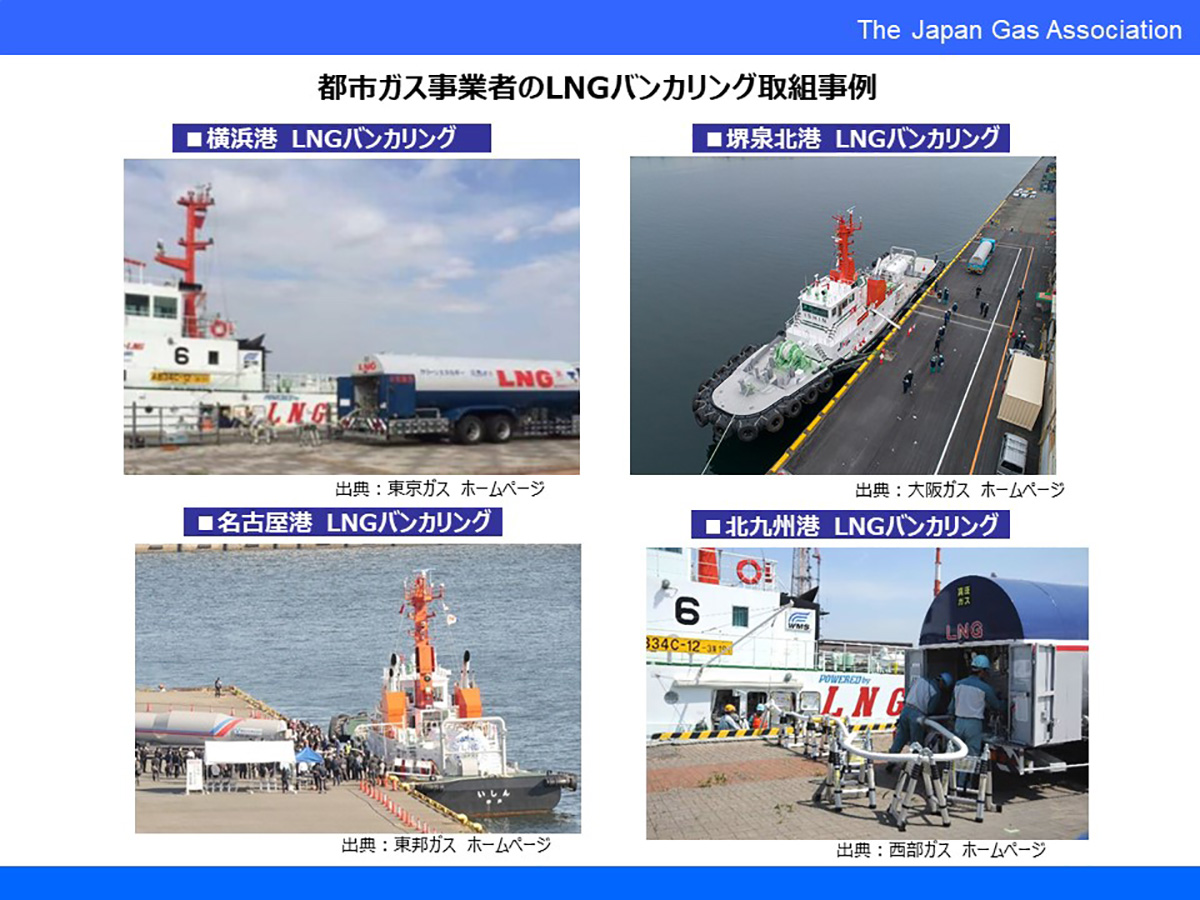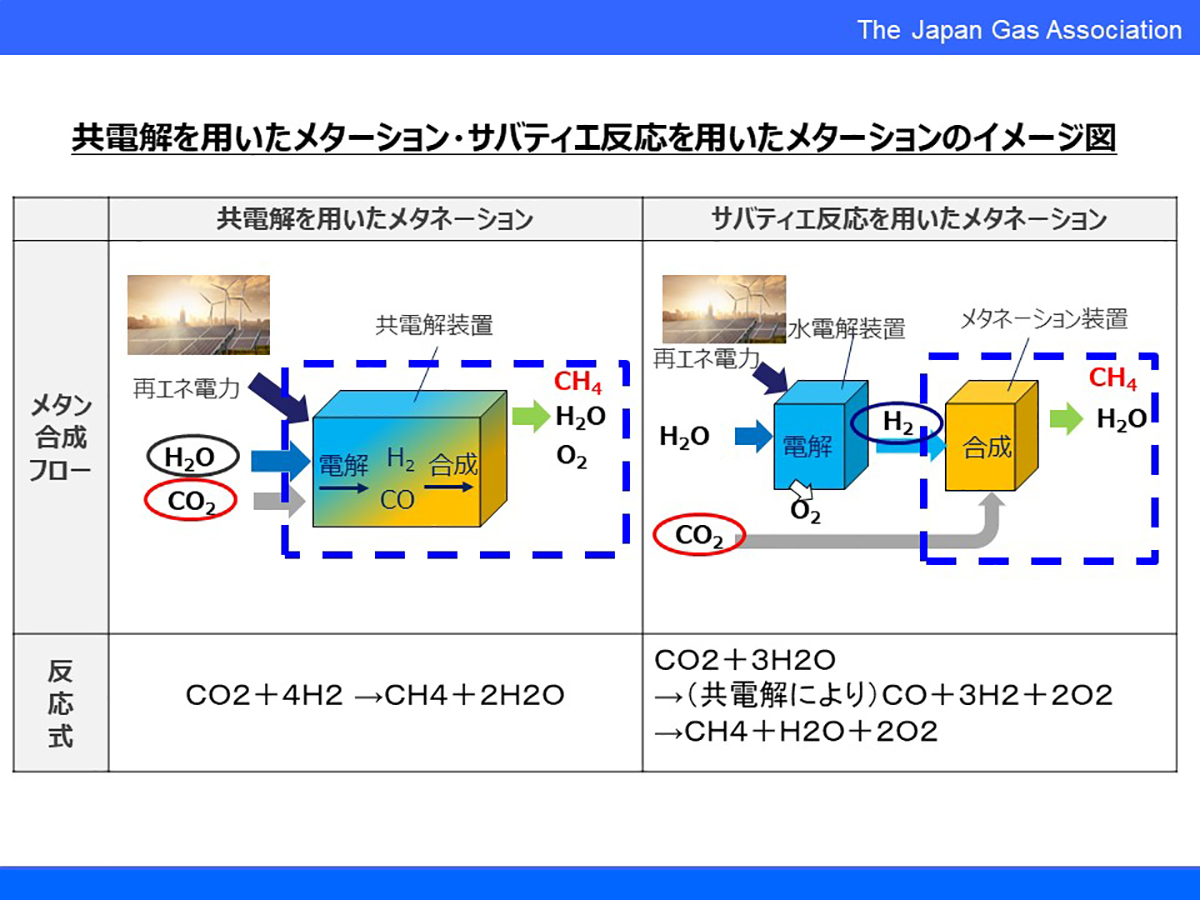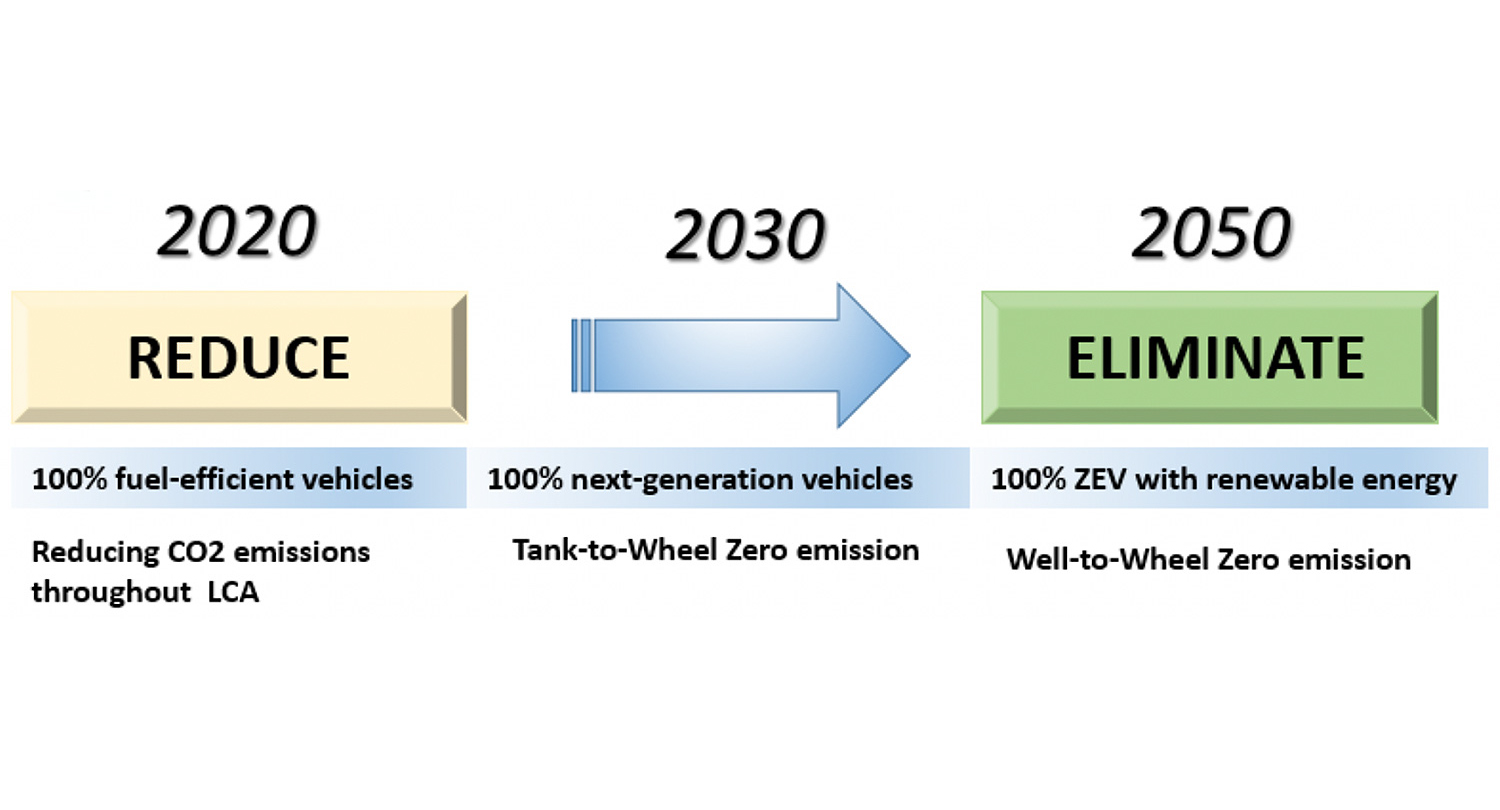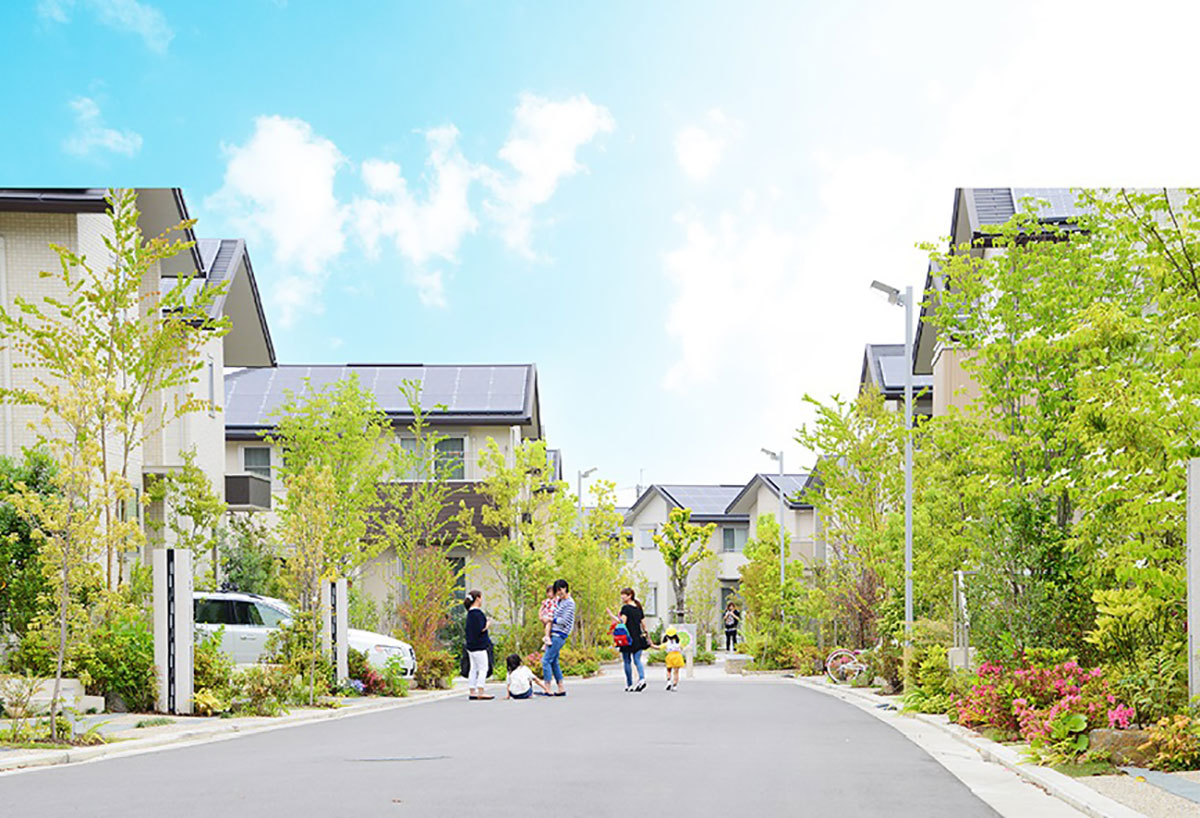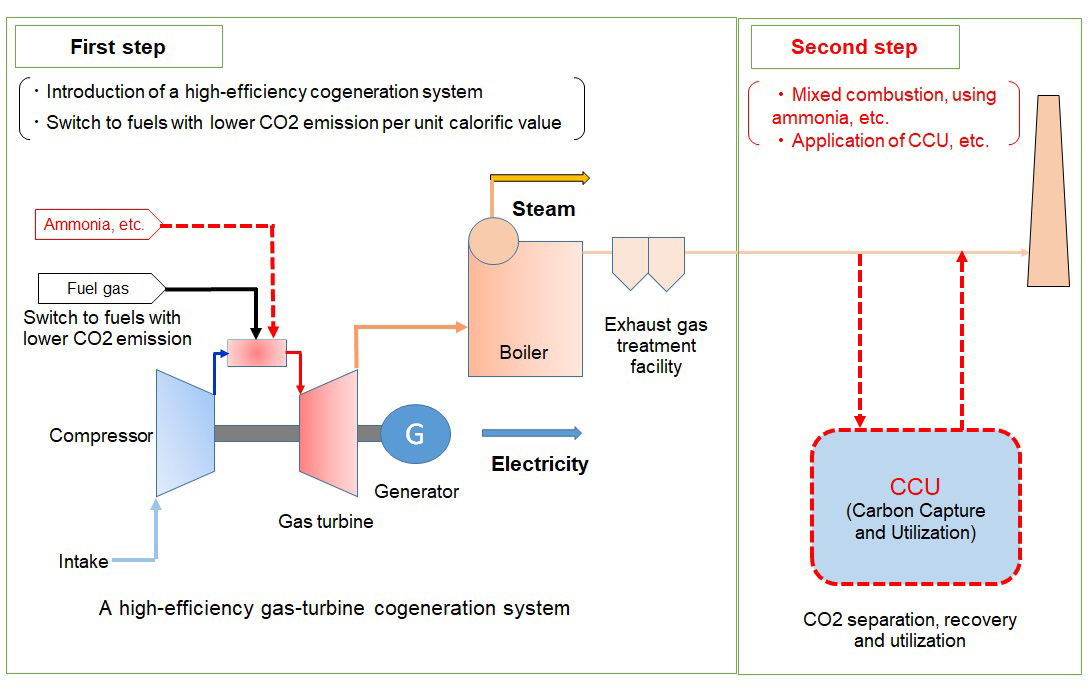The contribution to global warming countermeasures and high resiliency with area-wide utilization of decentralized energy system
The Japan Gas Association
Outline
The city gas industry will contribute to Japan’s global warming countermeasures and the 2030 target in the long-term prospect of electricity demand, by shifting natural gas and promoting low carbonization on the demand side with such as high-level usages of natural gas, in the short to medium-term. In the medium to long term, we will take on the challenge of further low-carbonization and decarbonization through innovations such as methanation technologies.
One of the high-level usages of natural gas are decentralized energy system, including gas co-generation. Co-generation is a high efficiency system that produce electricity and use waste heat generated from power generation for steam and hot water supply. Gas engines, gas turbines, and fuel cells are included in co-generation. In addition, the area-wide utilization of co-generation system realizes the energy share of electricity and heat in multiple facilities and buildings, so energy saving and CO2 saving can be expected. In addition, in the sense of diversification of energy supply, co-generation that uses the gas supply system is highly resilient and is expected to play an important role in natural disasters. In this way, the city gas industry will contribute to global warming countermeasures and adaptation and resilience by expanding co-generation.
Description
Co-generation, a typical example of decentralized energy system, generates electricity around the demand area, so it can almost eliminate transmission loss during sending electricity to the demand area. Since the waste heat at generating power can be used, this system enables to use energy efficiently. In addition, high efficiency of the co-generation equipment and cascade using of waste heat are also instructed.
In addition, further energy saving and CO2 saving can be expected with the area-wide utilization of co-generation system. Because the combined demands of various consumer in a certain region are leveled, it is possible to supply energy very efficiently as a whole. In particular, with an energy management system (EMS) that can monitor the power and heat loads of each consumer in real time, it is possible to optimally operate the co-generation system according to the overall load, and as a result, even greater energy saving and CO2 saving can be obtained.
Features of the cogeneration include high affinity for renewable energy. Since it is necessary to adjust the output fluctuation of renewable energy such as solar and wind power, co-generation which is very good at responsiveness is expected to play an important role as an adjustment of renewable energy. At that time, co-generation enables consumers to control the demand such as operating co-generation at the peak time of power supply for reducing electric power demand. As a result, future business, for example demand response (DR) and VPP (Virtual Power Plant) by co-generation, is expected to expand.
Further, the cogeneration can generate power separately from the general power system while using a highly resilient city gas supply system. So, it is possible to continue the energy supply even if an accident occurs in the electric power system. Namely co-generation system is effective in emergency response and business continuity. In fact, in recent typhoons and other natural disasters, these effects have been confirmed in hospitals, offices, homes, etc., so co-generation system is important from the viewpoint of adaptation and resilience.
In this way, the city gas companies will contribute not only to global warming countermeasures but also to various aspects, including adaptation and resilience, through the expansion of co-generation.
Supplementary information
Long-term vision for global warming countermeasures of the Japan Gas Association
https://www.gas.or.jp/kouken/
Other Innovation Challenges
Development of co-generation systems and fuel cells for high efficiency
The Japan Gas Association
Environmental load reduction in marine transportation by expansion of LNG bunkering
The Japan Gas Association
The challenge of low-carbonization and decarbonization of raw material for city gas through methanation technologies
The Japan Gas Association
Similar Innovation Challenges
Achieve 2050 decarbonization target with Net Zero Energy House!
Sekisui House, Ltd.
Achieving net-zero emissions by promoting renewable energy use through both our monozukuri and products.
DAIWA HOUSE INDUSTRY CO., LTD.

